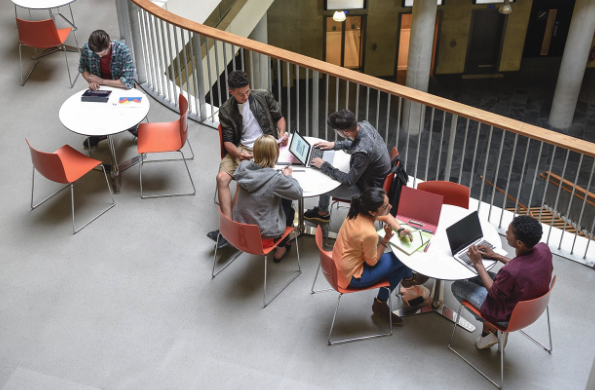
School climate significantly impacts students’ and their families’ educational and social experiences. A supportive school climate for bilingual families mitigates challenges tied to language and cultural differences while amplifying opportunities for success. A positive school climate is characterized by inclusivity, safety, cultural responsiveness, and meaningful engagement, fostering equitable educational opportunities for all students (Wang & Degol, 2016). This article examines the multifaceted role of school climate in addressing the unique needs of bilingual families and their children, focusing on evidence-based practices and actionable policy implications.
Understanding School Climate

School climate encompasses the norms, values, relationships, and organizational structures that define the quality of life within a school. It can be broken into several key dimensions:
- Safety: Physical and emotional safety are fundamental to a positive school climate. Bilingual students benefit from environments free from bullying and discrimination, where their cultural identities are respected (Berkowitz, 2022; Wang & Degol, 2016).
- Relationships: Trust and mutual respect among students, families, and educators form the backbone of a supportive school climate. For bilingual families, effective communication and relational trust are particularly critical (Yough et al., 2023; Yildiz, 2021).
- Teaching and Learning: Schools that set high academic expectations while embracing cultural and linguistic diversity create environments conducive to learning for bilingual students (García & Kleifgen, 2018).
- Institutional Environment: A welcoming physical and social setting, including bilingual signage and resources, supports the participation and engagement of bilingual families (Liang & Shin, 2021).
- Leadership and Community Engagement: School leaders play a pivotal role in promoting equity by actively engaging bilingual families and fostering collaboration (Yildiz, 2021; Piller & Gerber, 2021).
Challenges Faced by Bilingual Families

Bilingual families often navigate linguistic, cultural, and systemic barriers impacting their school engagement. Language differences can hinder effective communication, leading to misunderstandings or limited parental involvement (Liang & Shin, 2021). Cultural disconnects between home and school practices can exacerbate feelings of exclusion. Additionally, bilingual children may encounter stereotypes and lower expectations, affecting their self-esteem and academic performance (Piller & Gerber, 2021).
Systemic issues, such as monolingual ideologies and socioeconomic inequities, further marginalize bilingual families. These challenges underscore the importance of a school climate that embraces diversity and fosters inclusivity (García & Kleifgen, 2018).
The Role of School Climate

A supportive school climate addresses these challenges through:
- Inclusivity and Representation: Schools integrating cultural diversity into their curricula and celebrating bilingualism create environments where students feel valued (Piller & Gerber, 2021; García & Kleifgen, 2018).
- Communication and Accessibility: Providing multilingual resources and employing bilingual staff improves family communication (Liang & Shin, 2021; Yildiz, 2021).
- Parent Engagement: Actively involving bilingual parents in school decision-making strengthens trust and collaboration (Yough et al., 2024).
- Professional Development: Educators trained in cultural competence and second-language acquisition are better equipped to meet the needs of bilingual students (Wang & Degol, 2016).
- Social and Emotional Support: Programs promoting mental health and resilience address the holistic needs of bilingual students (Berkowitz, 2022).
Evidence-Based Practices

Research highlights the role of school climate in improving outcomes for bilingual students. Key evidence-based practices include:
- Culturally Responsive Pedagogy: Teaching practices that integrate students’ cultural backgrounds and native languages into the curriculum foster higher academic achievement and stronger identity development. García and Kleifgen (2018) emphasize the importance of embedding bilingualism into everyday classroom activities to normalize linguistic diversity.
- Family-School Partnerships: Studies show that collaborative efforts between families and schools enhance heritage language maintenance and bilingual identity formation (Liang & Shin, 2021). These partnerships involve regular, meaningful communication and shared decision-making to address students’ unique needs.
- Restorative Practices: Implementing restorative justice frameworks in schools can improve the emotional safety of bilingual students. These practices prioritize dialogue and understanding over punitive measures, reducing behavioral disparities often influenced by cultural misunderstandings (Berkowitz, 2022).
- Dual-Language Programs: Dual-language immersion programs, where students learn academic content in two languages, have been shown to benefit both bilingual and monolingual students. Research indicates that these programs lead to higher cognitive flexibility, better academic performance, and improved cultural competence (García & Kleifgen, 2018).
- Professional Development for Educators: Ongoing training for educators in cultural responsiveness and implicit bias ensures they can create inclusive classrooms. Training in second-language acquisition strategies helps teachers better support bilingual students’ linguistic development (Wang & Degol, 2016).
- Peer Support Programs: Initiatives encouraging peer mentoring and cross-cultural collaboration help foster belonging among bilingual students. Peer-led programs create linguistic and cultural exchange opportunities, building confidence and social capital.
- Data-Driven Interventions: Schools that systematically collect and analyze data on bilingual students’ academic and social outcomes can implement targeted interventions. This evidence-based approach ensures that resources are allocated effectively and equitably (Yough et al., 2023).
Implications for Policy and Practice

Policymakers and educators must prioritize systemic changes to create equitable and inclusive school climates for bilingual families. Key recommendations include:
- Resource Allocation: Increase funding for bilingual education programs and resources that support linguistic diversity (García & Kleifgen, 2018).
- Curriculum Development: Incorporate culturally relevant materials to validate students’ identities and foster engagement (Piller & Gerber, 2021).
- Professional Development: Provide ongoing training for educators in cultural responsiveness and language acquisition (Wang & Degol, 2016).
- Parent Involvement: Develop multilingual communication platforms and family engagement initiatives to strengthen collaboration (Liang & Shin, 2021).
- Policy Advocacy: Advocate for systemic changes supporting bilingual education and challenging discriminatory practices (Yildiz, 2021).
- Data-Driven Decision-Making: Data can be used to identify gaps and inform policies that support bilingual students (Berkowitz, 2022).
Conclusion
A positive school climate is critical to the success of bilingual families and their children. Schools can create environments where all students thrive by fostering inclusivity, celebrating cultural diversity, and addressing systemic inequities. Educational leaders and policymakers must work collaboratively to implement these changes, ensuring equitable opportunities for every child to succeed. Together, we can build schools that reflect and celebrate the rich diversity of our communities (Yough et al., 2023; García & Kleifgen, 2018).
References
Berkowitz, R. (2022). School matters: The contribution of positive school climate to equal educational opportunities among ethnocultural minority students. Youth & Society, 54(3), 372-396.
García, O., & Kleifgen, J. A. (2018). Educating emergent bilinguals: Policies, programs, and practices for English learners. Teachers College Press.
Liang, F., & Shin, D. S. (2021). Heritage language maintenance of Chinese immigrant families: Perceptions, practices, and challenges. Bilingual Research Journal, 44(1), 23-38.
Piller, I., & Gerber, L. (2021). Family language policy between the bilingual advantage and the monolingual mindset. International Journal of Bilingual Education and Bilingualism.
Wang, M. T., & Degol, J. L. (2016). School climate: A review of the construct, measurement, and impact on student outcomes. Educational psychology review, 28(2), 315-352.
Yıldız, N. (2021). School counselors’ leadership role in creating a collaborative school climate for linguistically diverse students. Journal of Education and Learning, 10(6).
Yough, M., Slaten, C. D., Sankofa, N., Li, J., & Anderman, E. M. (2024). English language learner perceptions of school climate and teacher-student relationships: Role of acculturation and implications for achievement. Learning Environments Research, 27(1), 143-160.
